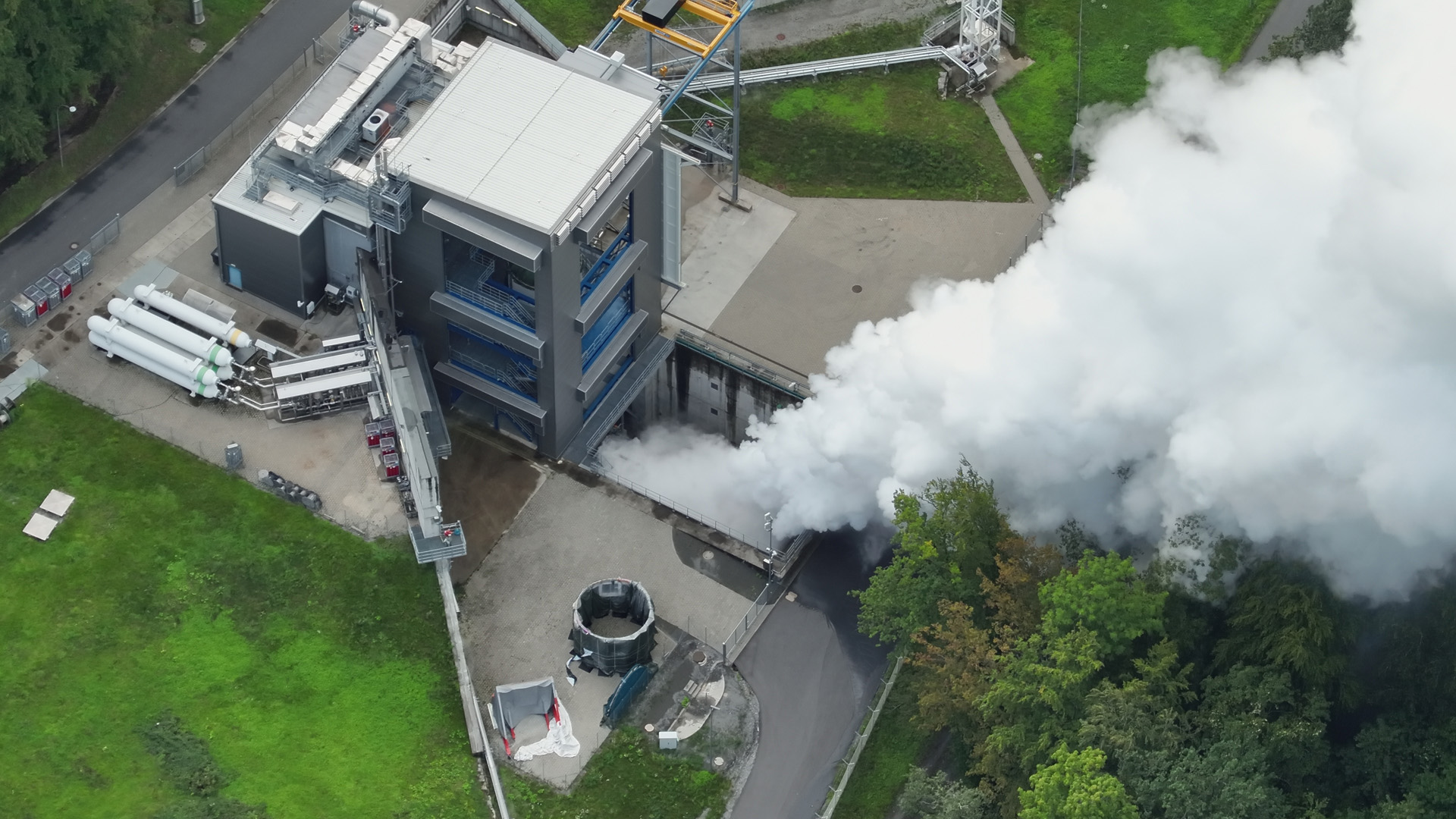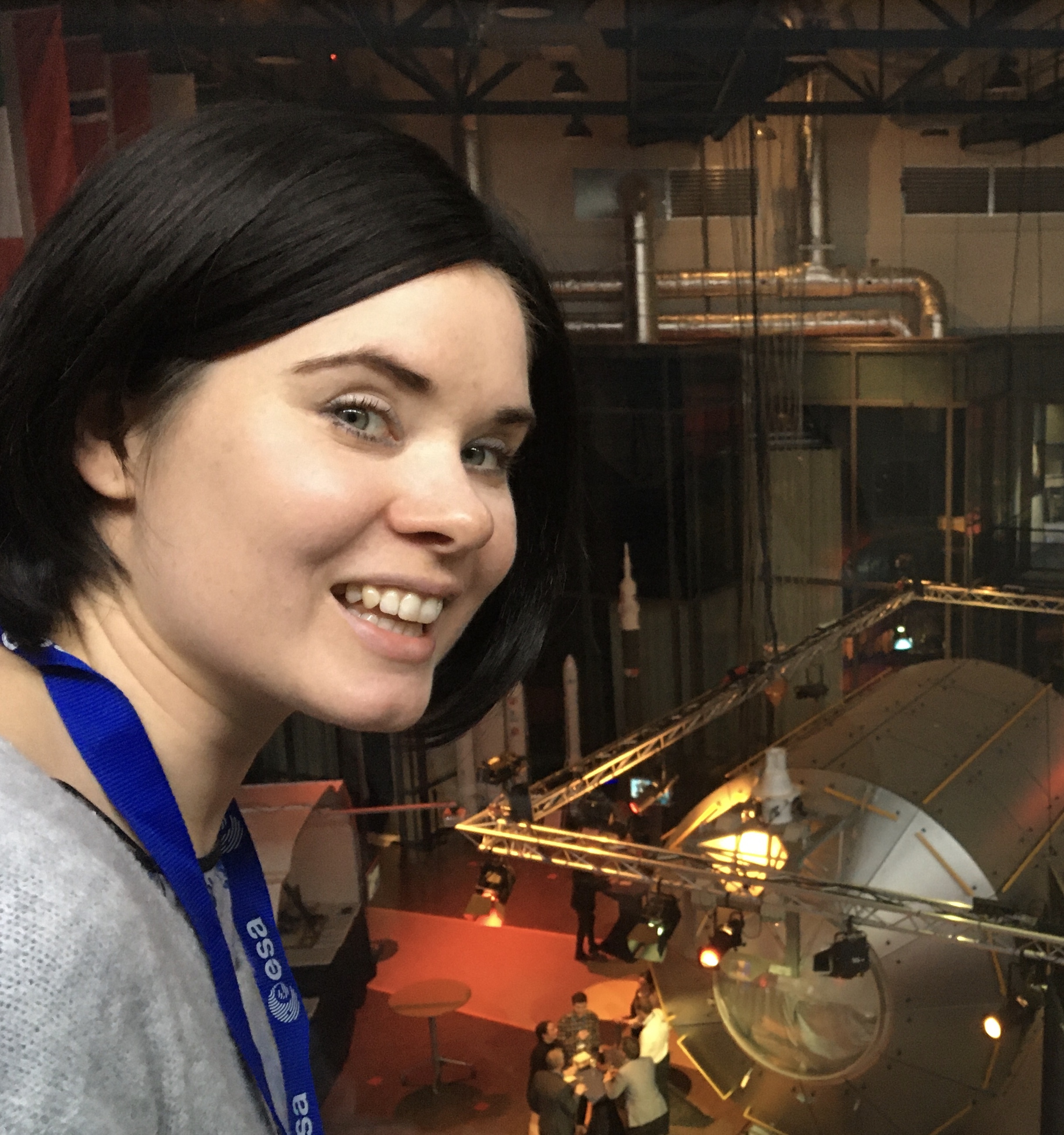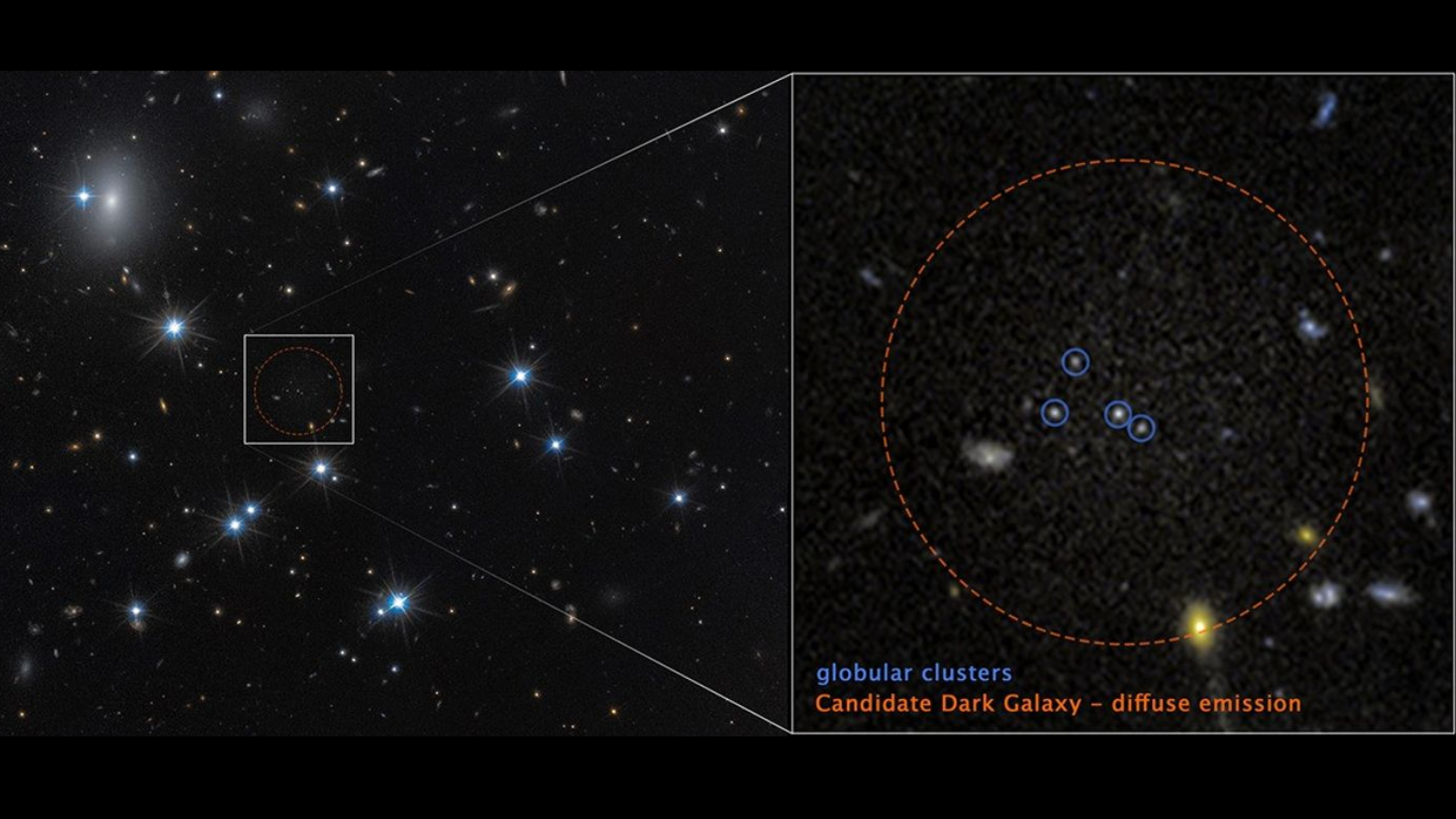Europe hopes to announce Ariane 6 debut flight date by the end of October
Europe's new heavy-lift rocket has nailed its upper stage test but struggles with main engine firing.

Breaking space news, the latest updates on rocket launches, skywatching events and more!
You are now subscribed
Your newsletter sign-up was successful
Want to add more newsletters?

Delivered daily
Daily Newsletter
Breaking space news, the latest updates on rocket launches, skywatching events and more!

Once a month
Watch This Space
Sign up to our monthly entertainment newsletter to keep up with all our coverage of the latest sci-fi and space movies, tv shows, games and books.

Once a week
Night Sky This Week
Discover this week's must-see night sky events, moon phases, and stunning astrophotos. Sign up for our skywatching newsletter and explore the universe with us!

Twice a month
Strange New Words
Space.com's Sci-Fi Reader's Club. Read a sci-fi short story every month and join a virtual community of fellow science fiction fans!
The European Space Agency won't know when its delayed heavy-lift Ariane 6 rocket will make its debut flight until at least the end of October when the main testing is supposed to be completed.
Ariane 6, developed by French space agency CNES and a consortium led by ArianeGroup, is Europe's next-generation launcher that is set to replace the now-retired Ariane 5. The development of the rocket is set to cost the European Space Agency (ESA) in excess of 4 billion euros ($4.15 billion), according to Reuters, nearly double the 2015 estimate.
The rocket features an innovative upper stage called Vinci, which can be reignited in flight, meaning it can deliver batches of satellites into different orbits. On Friday, Sept. 1, this upper stage underwent a successful test at the German Aerospace Center's (DLR) facilities in Lampoldshausen, Germany. During this test, which lasted about 22 hours, engineers simulated conditions the stage would experience during a standard mission. The test, which involved two Vinci ignitions with a total firing time of 680 seconds, was described as a resounding success by ESA, ArianeGroup and DLR officials during a news briefing on Monday, Sept. 4.
Related: 1st launch of Europe's new Ariane 6 rocket slips to 2024
"It's the first time the whole equipment of the [Vinci] stage has been tested at the same time and we made a simulation of the full mission," Martin Sion, ArianeGroup CEO, said in the briefing. "We went up to the end of the full operational mission which is a success as it means that if it had been the flight, this phase of the flight would have been successful."
That test was initially expected to take place in July this year. ArianeGroup's progress with the first stage testing has, too, been facing delays. A hot-firing test of the first stage Vulcain 2.1 engine, an iteration of the engine used on Ariane 6 predecessor Ariane 5, was scheduled for Tuesday, Aug. 29. The test, which was supposed to culminate with a four-second firing of the Vulcain 2.1 engine, was suspended due to problems with ground equipment. The Aug. 29 attempt was already the second failure to complete the test.
During an earlier attempt on July 18, the teams ran through the entire pre-launch procedure, according to ESA, but failed to ignite the engine due to a leak in a flange seal of a flexible hose between the mobile hydrogen reservoir and the Ariane 6 cryogenic ground infrastructure, ESA said in a statement.
Breaking space news, the latest updates on rocket launches, skywatching events and more!
The testing of the first stage is taking place on the launch pad in Kourou, French Guiana, from where Ariane 6 will be operated.
ESA said the teams will attempt the test again this week. After the successful completion of this short firing test, the teams at Kourou will move toward preparations of a long firing test, which, according to the current schedule, will take place in early October. If that goes well, the agency may be able to announce Ariane 6's debut flight date soon thereafter.
"After [the test], we will then be in a position to define a launch period of Ariane 6, which we will announce after this series of tests have been conducted," ESA director general Joseph Aschbacher said in the briefing.
Ariane 6 was originally expected to make its debut flight in 2020, allowing plenty of time for Europe to transition to the new heavy-lift rocket before the retirement of Ariane 5. But the string of delays resulted in a situation when the new rocket is nowhere near ready while the supply of the older Ariane 5 rockets has already run out. Combined with problems with Europe's small launcher Vega C, currently grounded after a December 2022 failure, Europe is currently without independent access to space. ESA's dark matter telescope Euclid had to be lifted to space aboard SpaceX's Falcon 9. Europe previously supplemented its launch needs through a partnership with Russia that saw Russia's Soyuz rockets launched from Kourou. That cooperation ceased following Russia's invasion of Ukraine.
Arianespace, which will operate Ariane 6 once the development is completed, said it has a backlog of launch orders for 28 Ariane 6 launches, including 18 for Amazon's internet-beaming constellation Kuiper, telecommunication companies Intelas, Eutelsat and Optus, as well as the European Organisation for the Exploitation of Meteorological Satellites (EUMETSAT), ESA and the European Commission.

Tereza is a London-based science and technology journalist, aspiring fiction writer and amateur gymnast. She worked as a reporter at the Engineering and Technology magazine, freelanced for a range of publications including Live Science, Space.com, Professional Engineering, Via Satellite and Space News and served as a maternity cover science editor at the European Space Agency.
